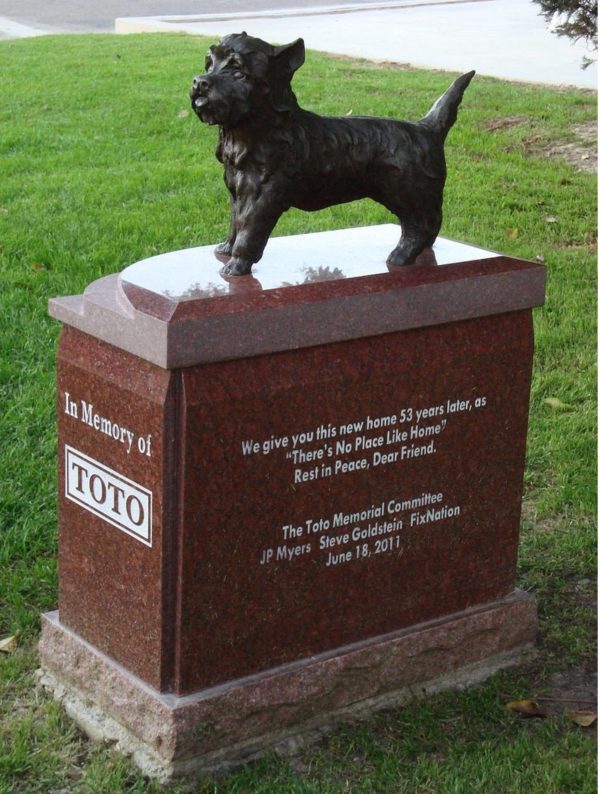Dog Days (IX)
In our series Dog Days, which has run throughout the 2018-2019 Year of the Dog, we have pursued our subject like the proverbial ‘dog pack’ or 狗仔隊, the Chinese term for paparazzi. In the twelfth and last month of the Wuxu Year of the Dog 戊戌狗年, we have offered the reflections both of Lin Yutang and Liu Xiaobo on China’s famous ‘homeless wandering dog’ 喪家狗 — Confucius (see Yesterday’s Stray Dog 喪家狗, Today’s Guard Dog 看門狗), while below we tell a joke, show a tragedy and discuss dogs and dog-mania both in China and further afield.
During this tail end of the Year of the Dog, which will give way to the 2019-2120 Jihai Year of the Pig 己亥豬年 on 5 February, we will conclude our series with a poem about a humble animal whose cruel end contributed to greatness.
— Geremie R. Barmé
Editor, China Heritage
26 January 2019
Three Canine Futures
Lee Yee 李怡
A Soviet-era joke:
Mao Zedong is out strolling with the President of the USA and the head of the Soviet Union. They come across an old lady chasing after her dog. Mao says:
‘Let’s see which of us can help the old lady recover her mutt.’
The US President shouts out: ‘Hey there, doggie, come back and I’ll give you freedom and a good life.’ But the dog keeps running regardless.
The Soviet leader bellows: ‘Dog: if you don’t get back here right now I’ll order the KGB to eliminate you.’ But the dog ignores him.
Now it’s Mao’s turn and he calls out in his heavy Hunanese accent: ‘Dog: just keep on going, before you stretches the glorious road to socialism!’
The animal instantly does an about face and runs back to its owner.
有一個蘇聯時代的笑話:毛澤東和美國總統、蘇聯主席一起散步。看到一個老太太在追趕一隻逃跑的狗。毛說咱們幫幫這個老太太吧,看誰有本事叫這隻狗自己回來。美國總統喊道:「狗,回來我給你自由和優裕的生活。」狗還在跑。蘇聯主席叫道:「狗啊,你要不回來我就指使KGB殺死你。」狗還是不理會。這時候毛操着濃重的湖南話對狗喊:「狗兒,向前跑吧,你前面是一條社會主義的康莊大道。」狗一聽,立刻掉過頭跑了回來。
—from Lee Yee, ‘A Most Unequal Society’, 23 October 2018
李怡, 最不平等的社會, 《蘋果日報》, 2018年10月23日

Shunsuke, the Cosplay Pooch
Shunsuke 俊介 (しゅんすけ, 6 November 2002-17 October 2017), pronounced Jùnjiè in Chinese, was a Pomeranian 博美犬 toy dog born in Japan that enjoyed inordinate popularity both in its homeland and in the People’s Republic of China. Shunsuke was an early social media sensation that sparked an obsession with bestial cosplay (the dressing of animals in costume).
A significant reason for the popularity of this otherwise unremarkable, and to some observers grotesque, fur ball was that Shunsuke’s owner groomed the creature so that it was all but indistinguishable from real toy dogs. As a result, Shunsuke became a pinup dog of what is known as ‘adorableness’ 萌え or moe — 萌 méng in Chinese, that is ‘cutesy-pie popularity’, or ‘kitsch-cute’. His online fame gave rise to the term 萌犬 ‘adore-a-dog’.

Also known as a ‘Dwarf Spitz’, Shunsuke’s breed originates in Pomerania, a region that now straddles Poland and Germany. It first enjoyed royal patronage when, in 1767, Queen Charlotte, Queen-consort of King George III, brought two Pomeranians to England. They were also a favorite with Charlotte’s granddaughter, Queen Victoria, who preferred a smaller version of breed; as a result of her royal favour the creatures were bred to half their original size. (Victoria also favoured a ‘Pekinese’ taken from the Yuanming Yuan Garden of Perfect Brightness in 1860 when the Manchu palace-pleasure park outside Beijing was destroyed by an Anglo-French invading force. We will introduce this hapless mutt in Dog Days X.)
Shunsuke takes the Mainland, a timeline:
- January 2010: ‘Shun Mama’, 俊媽媽 in Chinese, starts posting pictures of her pet on Twitter and these soon attracts a considerable following in Japan
- 20 October 2010: Shunsuke features on the cover of CREA Due Dog, issue 3
- July 2011: a collection of photographs titled Roll Over, Shunsuke! is published
- August 2011: Shunsuke features on a TV and his fans soon number over 20,000
- 17 August 2011, in the People’s Republic the Shunsuke craze sweeps WeiBo, Tencent and other social media apps, as well as featuring in Baidu. Within a week, the bitch boasts 400,000 Mainland Chinese followers
- This results in a craze for breeding, buying, dressing up and photographing toy dogs in China

***
In other climes, celebrity dogs find it hard to cope with fame. ‘Stupid Spoiled Whore’ — Episode 12 of Season 8 of the animated adult sitcom TV series South Park — makes dogmeat of celebrity-for-no-apparent-reason Paris Hilton and her prisoner pets.
In the show, Patches, a white poodle, has already committed suicide by hanging before the next pet, Tinkerbell, a chihuahua, makes a fleeting, if tragic, appearance:
While Hilton is engrossed in a phone conversation, Tinkerbell steals the limousine driver’s handgun and shoots itself in the mouth. Tinkerbell is immediately replaced with a small child (Leopold ‘Butters’ Stotch, a recurring character in the show) that Hilton kidnaps from the side of a road with an announcement that, henceforth, this cute toy-dog-sized human will be her new pet:
From Hilton’s ‘My Pets’ scrapbook, also featured in South Park, we learn that Scrambles, a white cat, had killed himself by slitting his wrists in a bathtub and a spaniel named Cuddles had committed ritual seppuku.
Dogs
Osbert Sitwell
If you admit to — or, it may be, boast of — a dislike for dogs, then, in England, it is inevitably assumed that you favour their being treated with brutality. Many people, indeed, hearing you indulge in such a confession, would demand your immediate impeachment by that fighting body, the R.S.P.C.A. … It becomes necessary, then, to remind yourself from time to time that you cannot, as yet, be prosecuted for an aversion from, but only for cruelty to, animals.
Therefore consider, and condemn, dogs and their ways. In them, very few virtues of the animal world are evinced. They are dirty and dishonourable, immoral — not amoral, as some suggest — and, yet, teetotal; enemies, too, of beauty, of silence — in itself enchanting — and of all lovely objects from Persian carpets down to foxes and pheasants. They have no sense of humour, only a vacuous and rather cruel grin. Above all, they are cynical, supremely cynical: the very word cynic is derived from the Greek word for ‘dog’, for cynics were supposed to ‘grin like dogs’, and, indeed, the dictionary definition of ‘cynic’ as a ‘sneering fault-finder’ fits all dogs to a tee. Finally — and this, too, is a serious objection to them — they are not even good to eat…. (Let me interrupt my dissertation here, to assure nervous dog-owners that I have no wish to eat their pets; but that, were I to do so, they would have no remedy. To eat an animal is, in English law, neither cruel nor illegal; though I, with no great fondness for brutes, should have deemed it both.) … They are not good to eat, I was saying, except to the very cultured palate of the Chinese; for it is stated that the word ‘chow’, which is the formal title of one of the proudest and most detestable of canine breeds, means ‘good’, merely in the sense of good to eat.
But worse, far worse than any fault that I have cried against them, worse even than their unappetizing inedibility, is the fact, plain for all to see, that they do not know when they are disliked: unless, perhaps, the explanation is an opposite one, and they do know it and revel in it? … In any case, they delight in adopting me, in following me on what I had intended to be a lonely walk through the countryside, disturbing my train of thought, tripping me up unaware, panting hotly after, so as to make me, too, feel hot and out of breath…. And then, any sign of wild life in vale or woodland, and, however fatigued they have pretended to be, they are out hot-foot to destroy it, snuffling, fussing, growling and yapping. And this brings another objection in its train: how ugly are their voices, Whether gruff in anger or wheezy in contentment! Yet, in their self-conceit, it is plain that they think them tuneful, pleasing to all men. ‘What can I do to comfort my master, for he is nervous and ill at ease today?’, they seem to say, and reply to themselves: ‘I will bark.’… Nor can man, his master, be altogether acquitted of lending a certain encouragement to this point of view.
Yet, though dogs, it may be, are popular today, were they always regarded with such approbation? Is this alliance between man and dog in reality such an ancient one, to be traced back, as the archaeologists have told us, to far times when, together, these two creatures were hunted, through lands which are now seas, by the sabre-toothed tiger?… Perhaps the idiom of our language, a frozen repository of knowledge of such a kind, can help us towards a conclusion on this subject.
The dictionary, certainly, informs us of no innate liking for dogs in our ancestors. To begin with, it defines the meaning of dog, when applied to a human being, as ‘worthless or surly person’ (and, in support of it, I may own that often, when reading some particularly stupid and ill-tempered review of a book, the description ‘beastly dog of a reviewer’ has risen involuntarily to my lips). Again, ‘to go to the dogs’ was wont, formerly, to be considered no desirable journey; ‘a dog’s life’ was no good thing, ‘dog-days’ were days to be avoided, nor was a ‘dog’s death’ an end after which to hanker. The baboon, called ‘dog-faced’, does not derive his name from the beauty of his countenance, neither is the ‘dog-fish’ a pretty object; nor, as far as that, is the word ‘bitch’ generally used in any sense even of empty compliment. And I notice, in the dictionary once more, that ‘Dog-Fennel’ is a name applied to ‘Stinking Camomile’.
Of course, the explanation of so much dignified dislike and contempt may be that dictionaries are compiled by literary men, and that authors, as a profession, must be hostile to dogs (George Moore, for example, was a noted leader of the anti- dog campaign), since many are the books, good and bad, which dogs have prevented being written, many are the poems in embryo which their insensate yapping has strangled…. Yet it looks as though this antipathy rested on a firmer basis. Why, then, you may ask, are dogs, their names formerly a term of reproach, so popular in modern England; who has conspired to give the dog a good name?… In modern England alone, for foreign races, more kind to children, are less kind to animals.
The reason, I apprehend, is because the dog is by nature dumb, inexpressive; incapable of speech and gesture, or the thoughts which these things transmit…. And this, of course, appeals to the Englishman, often in somewhat the same way himself. Babies, too, are loved in this our land until they grow old enough to be sensible, when, indeed, they lapse in favour; for, as a race, we loathe reasoning, or, as we call it familiarly, ‘answering back’. The dog cannot answer back….
In Latin countries it is quite otherwise. Parents adore children; children love parents. There we find never any need for a society to prevent cruelty to children. But animals certainly need protection…. Thus I remember sitting at breakfast on the terrace of a hotel in south Italy. The concierge, talking of animals, pointed to a waiter, and remarked, in a congratulatory manner: ‘Michele is very good with animals.’ ‘You mean, kind to them,’ I corrected, ‘very kind, no doubt.’ ‘No, sir,’ he replied, ‘I mean, he can kick them very quickly, and as if by mistake, without attracting the attention of their masters.’ … Now therein Michele goes too far for my taste: though often I, too, make horrible, frightening faces at these pets, when their owners are not looking.
To sum up, dogs should be neither seen nor heard; they should never be allowed to enter a house or city; nor should they be permitted in gardens, but only in parks and meadows. . . . From this proclamation of outlawry I would alone except the Pekingese, that arrogant but quiet race of palace-dwellers, and my personal friends. For I have friends in the animal world; and Carlos, who pants beside me as I write, is one of them; a fussy, woolly, self-important friend, but a friend none the less.
‘Step Across This Line’
Salman Rushdie
I thought one further thought, which I had better confess now, as it gave me a sneaking regard for Miss Gulch and her fantasy counterpart, the Wicked Witch, and, some might say, a secret sympathy for all persons of her witchy disposition, which has remained with me ever since: I couldn’t stand Toto. I still can’t. As Gollum says of the hobbit Bilbo Baggins in another great fantasy: “Baggins: we hates it to pieces.”
Toto, that little yapping hairpiece of a creature, that meddlesome rug! L. Frank Baum, excellent fellow, gave the dog a distinctly minor role: it kept Dorothy happy, and when she was not, it had a tendency to “whine dismally” — not an endearing trait. Its only significant contribution to Baum’s story came when it accidentally knocked over the screen behind which the Wizard of Oz was concealed. The film-Toto rather more deliberately pulls aside a curtain to reveal the Great Humbug, and in spite of everything I found this an irritating piece of mischief-making. I was not surprised to learn that the pooch playing Toto was possessed of a star’s temperament, and even brought the shoot to a standstill at one point by staging a nervous breakdown. That Toto should be the film’s one true object of love has always rankled. But such protest is useless, if satisfying. Nobody, now, can rid me of this turbulent toupee.
13 October 2002
***

Dog Days 2018-2019
- The Editor, Mondo Cane, The 2018 Year of the Dog 戊戌狗年, China Heritage, 16 February 2018
- Don J. Cohn, A Pride of Pekingese — Dog Days (I), China Heritage, 18 February 2018
- Pu Songling, The Dog Lover — Dog Days (II), China Heritage, 24 February 2018
- Lee Yee and The Editor, The Real Man of the Year of the Dog — Dog Days (III), China Heritage, 2 March 2018
- The Editor, Objecting — Dog Days (IV), China Heritage, 5 March 2018
- Lois Conner, Foo Dog-Lions — Dog Days (V), China Heritage, 16 March 2018
- Pu Songling, The Midget Hound — Dog Days (VI), China Heritage, 11 May 2018
- Frank Hersey, 事兒狗福狸 Bad Dog! — Dog Days (VII), 14 June 2018
- Liu Xiaobo, Yesterday’s Stray Dog 喪家狗, Today’s Guard Dog 看門狗 — Dog Days (VIII), China Heritage, 4 January 2019

